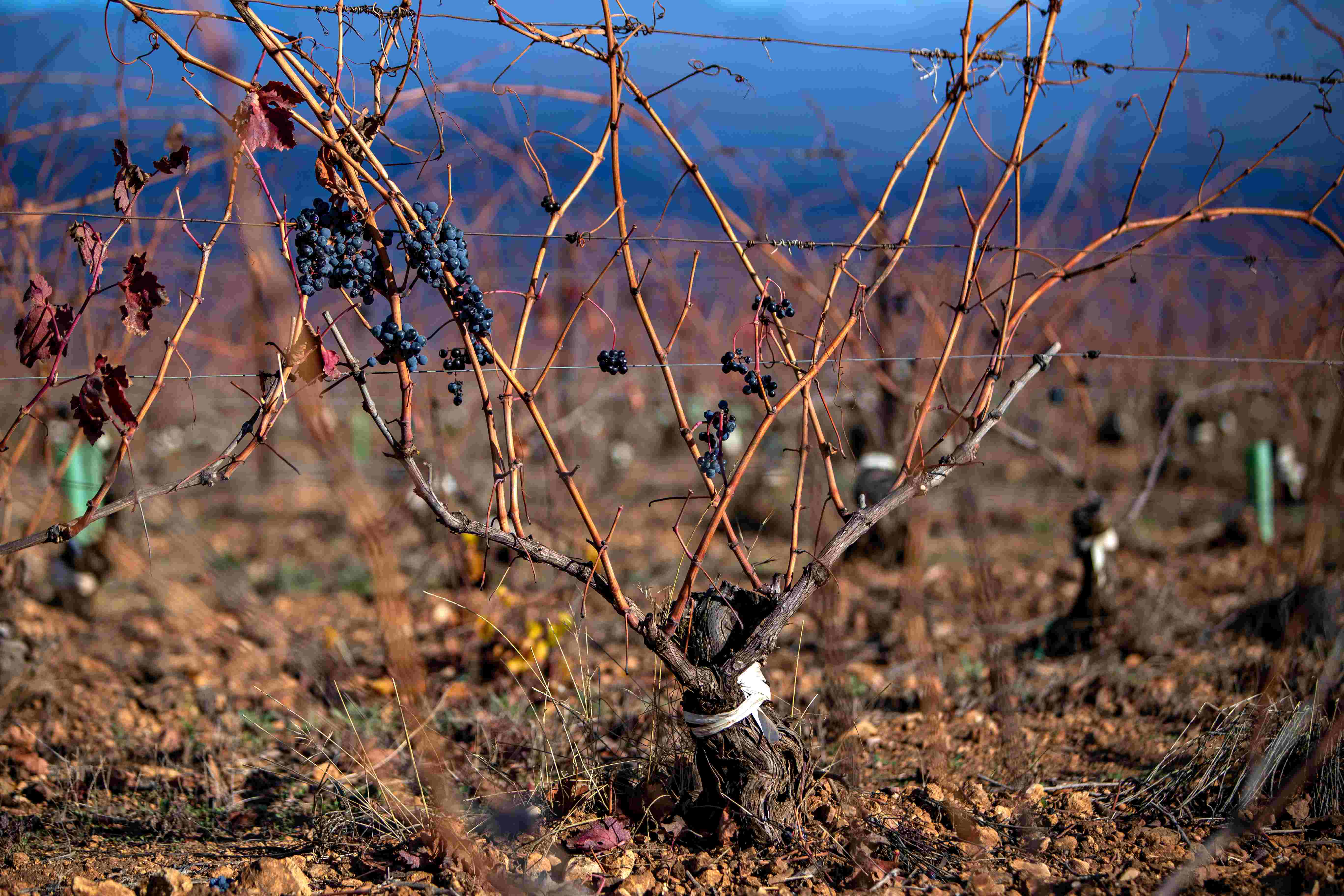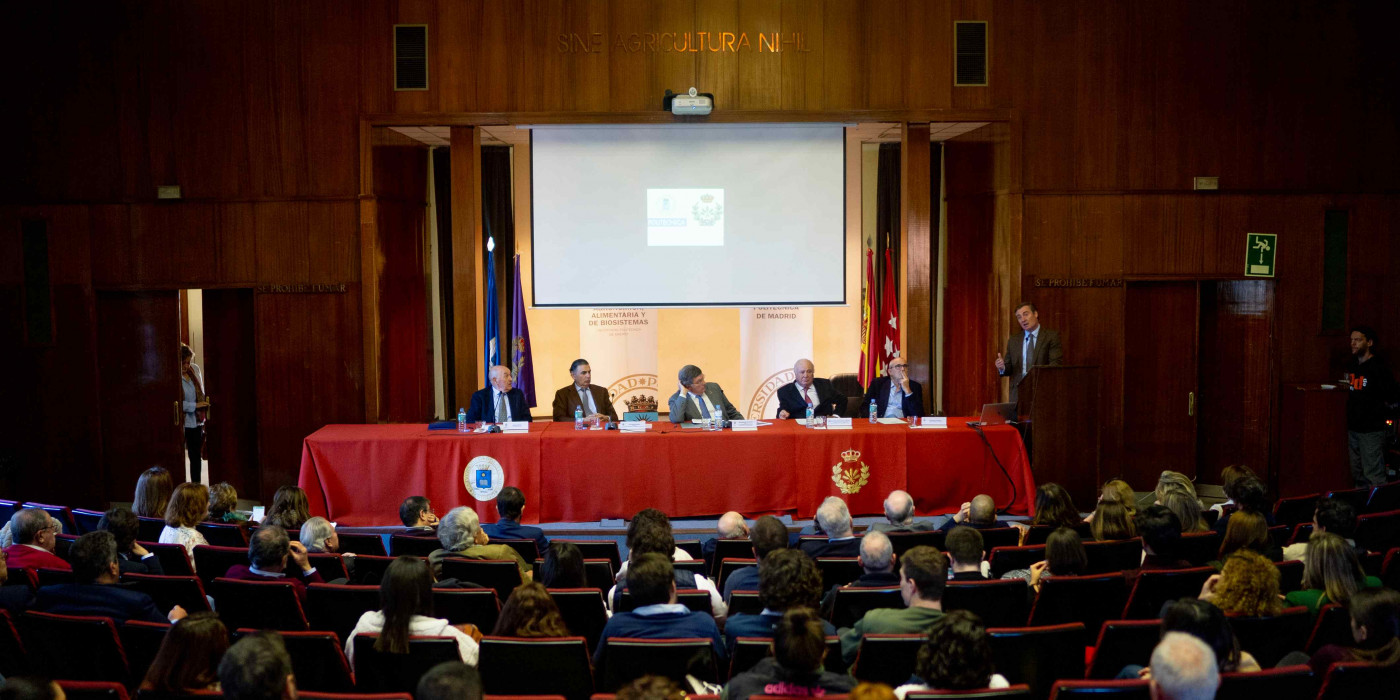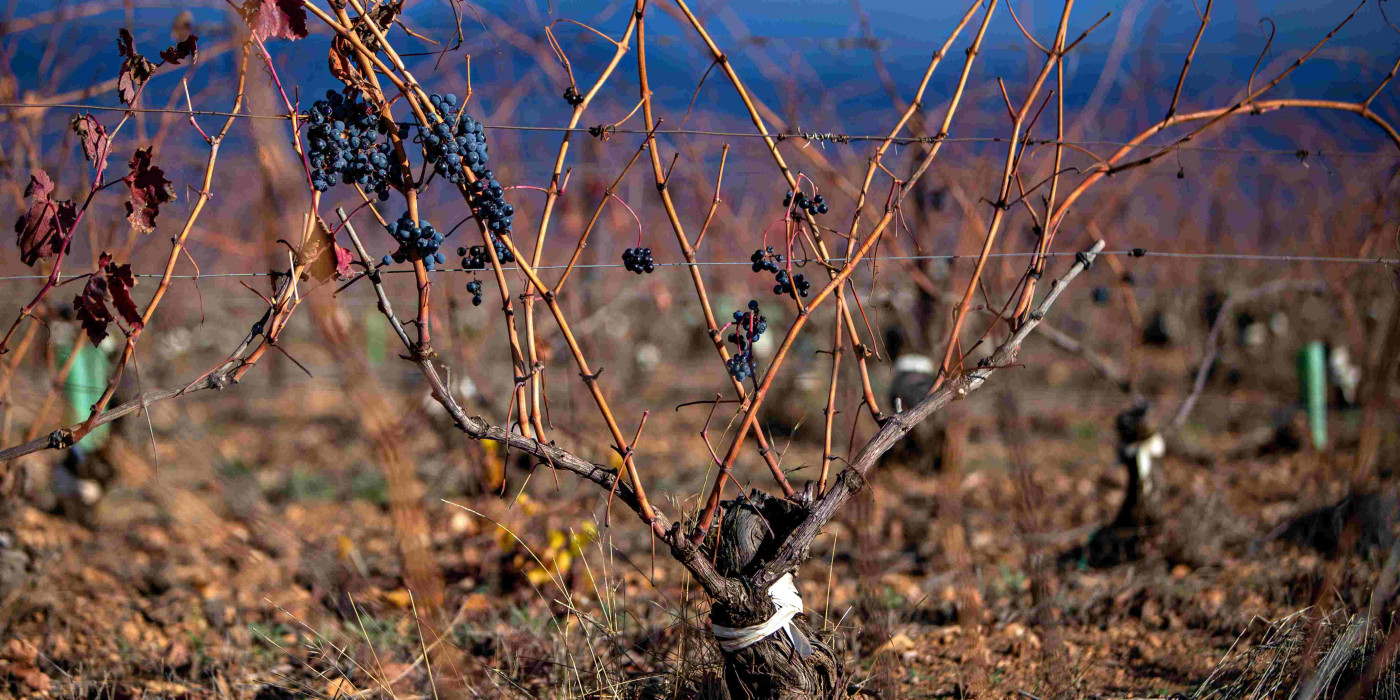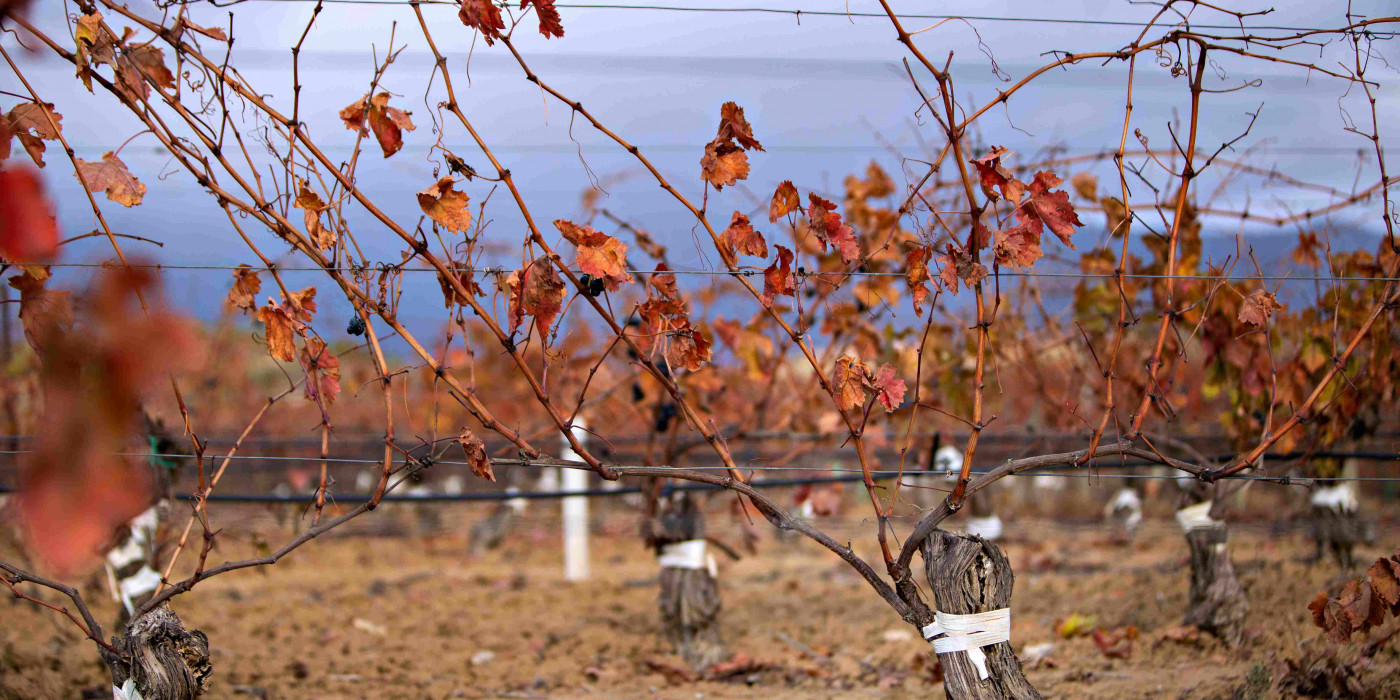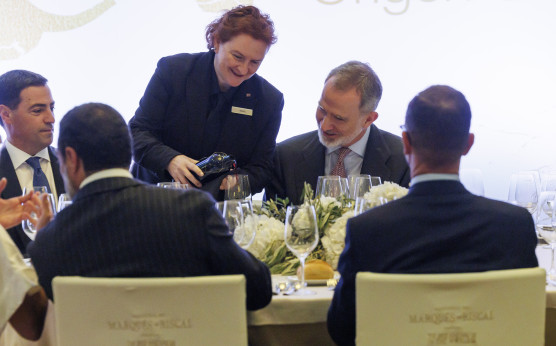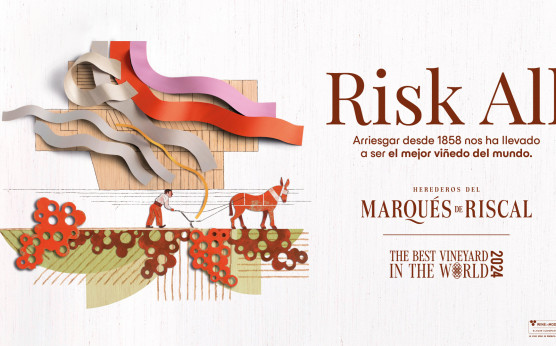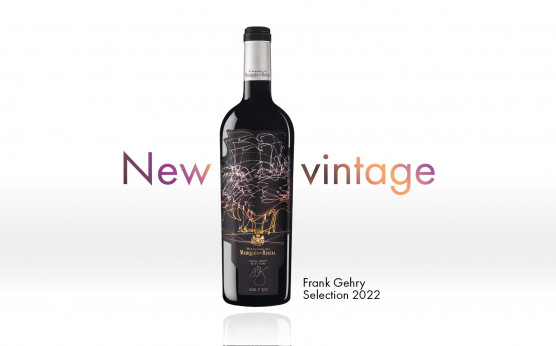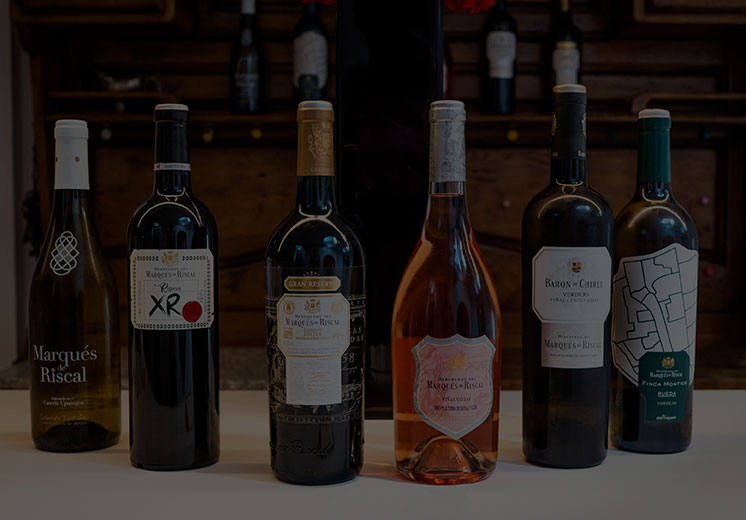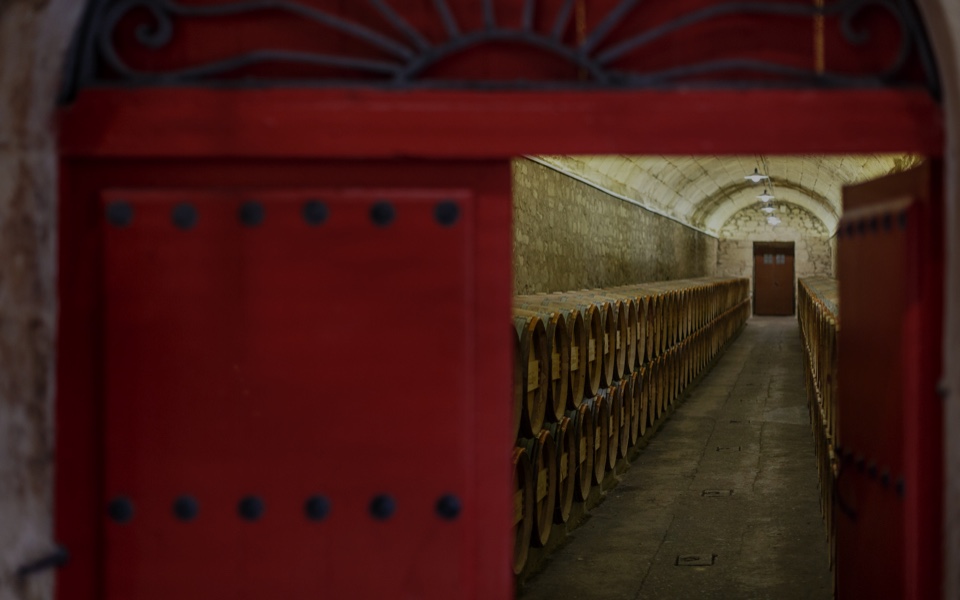Bodegas de los Herederos del Marqués de Riscal presented the results of their work in the Madrid Escuela Técnica Superior de Ingeniería Agronómica, Alimentaria y Biosistemas with a talk entitled "Sobre el rejuvenecimiento del viñedo y su adaptación al cambio climático” (“Regarding rejuvenation of the vines and their adaptation to climate change”) in which they explained the measures the company has taken in recent years in the field of vine growing by re-grafting the vines with two clear aims: to rejuvenate the vineyards and adaptation of the cultivation systems to combat the uncertainties posed by climate change. The event was attended by José Manuel Palacios, director of the Escuela Técnica Superior de Ingeniería Agronómica, Alimentaria y de Biosistemas (Madrid); Alejandro Aznar, president of Vinos de los Herederos del Marqués de Riscal; Vicente Sotés, Emeritus Professor of the Escuela Técnica Superior de Ingeniería Agronómica, Alimentaria y de Biosistemas; Francisco Hurtado de Amézaga, General Technical and Production Director of Bodegas de los Herederos del Marqués de Riscal; Pedro Ballesteros, agricultural engineer and Master of Wine; and Luis Hurtado de Amézaga, General Technical and Production Director of Marqués de Riscal at their Rueda bodega.
Francisco Hurtado de Amézaga was responsible for explaining how Marqués de Riscal began their policy of re-grafting in 1995, with the vineyards the bodega has in the Rueda Designation of Origin. The success of that first intervention led them to apply this technique again in 1998 in vineyards in the D.O.Ca. Rioja, although it was really in 2017 that the company decided to make a definitive commitment to this system. Since then, 180 hectares of vines have been re-grafted, with huge success.
The idea of re-grafting came from observing that the vines planted around the decade of the 70s were not producing the same results as the older vines, planted earlier. Faced with this situation, Hurtado de Amézaga explains, “The option was either to grub up the vines or re-graft them, something which was looked down on at the time”. Finally it was decided to re-graft with wood taken from those older vines which were giving very good results. One of the big advantages of this system as opposed to grubbing up is that the vine stocks already have an older root system, to which the plant that is being grafted to it adds its quality. Thus, in a short space of time, they have managed to obtain wines of similar quality to those from their older vines. “We can consider the work as completed because it has been a resounding success in terms of quality”, states the General Director of Marqués de Riscal.
In this way, not only is the life of the vines prolonged, but also, their value is increased. As Master of Wine Pedro Ballesteros commented, “the old vine is intelligence at the disposal of the human being” and he underlined that “it should be prohibited to grub up old vines, since the vocation of the vine is eternal, it is landscape”.
Measures in the vineyard in the face of climate change
For his part, Luis Hurtado de Amézaga, Technical and Production Director of Marqués de Riscal in the Rueda bodega recounted the challenges faced by the company due to climate change. One of his main answers is the organic agriculture which they started doing 10 years ago. This type of agriculture makes the plant more resistant and resilient in the face of the possible adaptation necessary to cope with climatic uncertainty. “Our aim is to set in motion a type of agriculture which allows our vines to live as long as possible”, explains the technical director. Currently, Marqués de Riscal has 350 hectares certified as organic in Rueda, 370 hectares in Rioja and a little over 100 in the process of certification. Quite a milestone among Spanish wine cellars, since there are very few making such a firm commitment to organic cultivation methods.
Furthermore, the company strongly believes in regenerative agriculture, which allows it to recover the life of the soil, also attempting to limit tillage to a minimum. The increase in biodiversity in the soil increases the amount of organic matter and carbon, preventing soil erosion. It not only improves the life of the soil, but also the biodiversity in the vines themselves, both plant and animal, thanks to plant cover or even trees and shrubs which attract fauna which is beneficial to the vineyard. A combination which makes it easier to control pests in a natural way, without the need of extraneous treatments.
Another important point for Marqués de Riscal is to guarantee the continuity of the plant. The bodega group has 500 hectares of old vines in the Rioja Alavesa, a guarantee of quality for its wines, and pruning is key for ensuring that the plants have as long a life as possible. At present they are working with an Italian firm specialised in the Simonit and Sirch pruning method, to recuperate traditional pruning techniques that respect the flow of the plant’s sap and minimise the wounds caused, which are the gateway for diseases to get in which can finish off a vine plant. The continuity of the plant allows these vines to rot better and to colonise a much larger volume of the soil. This means the plant can absorb more water, absorb more nutrients and therefore, in conditions of stress – as have occurred in the more recent harvests due to increased temperatures – these plants are able to use the water and nutrients they have previously absorbed, as well as their reserves so that the grape can ripen perfectly. Hence the importance of having old vines.
Looking at how the climate is changing, they are also taking into account other factors, so that the vineyards of the future can withstand climate uncertainty: specific training systems, cooler orientations and higher altitudes, or soils with good drainage.
Therefore, Marqués de Riscal are taking steps to be able to tackle the challenges of changes due to climate instability. In a word, they are pursuing constant innovation- something which is part of their DNA.


